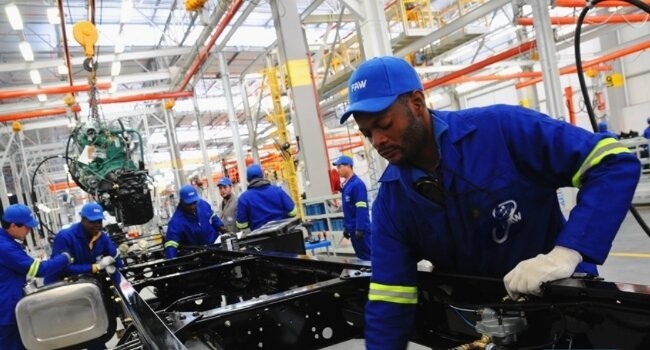The National Automotive Design and Development Council (NADDC) has announced plans to establish a new auto industrial park aimed at supporting local manufacturers, reducing production costs, and enhancing Nigeria’s position in the automotive sector.
Speaking at a media briefing in Abuja, NADDC Director General, Mr. Oluwemimo Osanipin, outlined several initiatives to strengthen local manufacturing capabilities, including increased production of spare parts, batteries, and tyres. These efforts are vital as Nigeria prepares for the African Continental Free Trade Area (AfCFTA) agreement set to commence next year.
Key Highlights:
- New Auto Industrial Park: The proposed park will offer shared facilities such as electricity, security, and equipment to help small and medium-sized manufacturers scale operations while lowering production costs.
- Consumer Credit Fund: Disbursement of the N20 billion Consumer Credit Fund, aimed at encouraging the purchase of locally-assembled vehicles, will begin in January 2025.
- Local Component Production: NADDC is prioritizing the local production of essential spare parts, including tyres and air filters, to meet domestic demand and reduce dependency on imports. Nigeria currently spends $19 million annually on motorcycle spare parts imports.
- Battery Manufacturing: Discussions are underway with stakeholders to commence local production of automobile batteries.
- AfCFTA Readiness: The council’s initiatives are designed to position Nigeria competitively, ensuring the country avoids becoming a dumping ground for foreign products when trade barriers across Africa are removed.
Osanipin emphasized the critical role of spare parts in the auto industry, stating, “Auto parts are the foundation of an auto industry, and we have to lay that foundation for the industry to grow.” He also highlighted the need for Nigeria to focus on producing components where it has a comparative advantage, ensuring sustainability and growth in the sector.
The NADDC boss expressed optimism that the proposed industrial park and other initiatives will drive economic growth, reduce production costs, and significantly increase local manufacturing capacity, creating a more competitive automotive industry in Nigeria.

